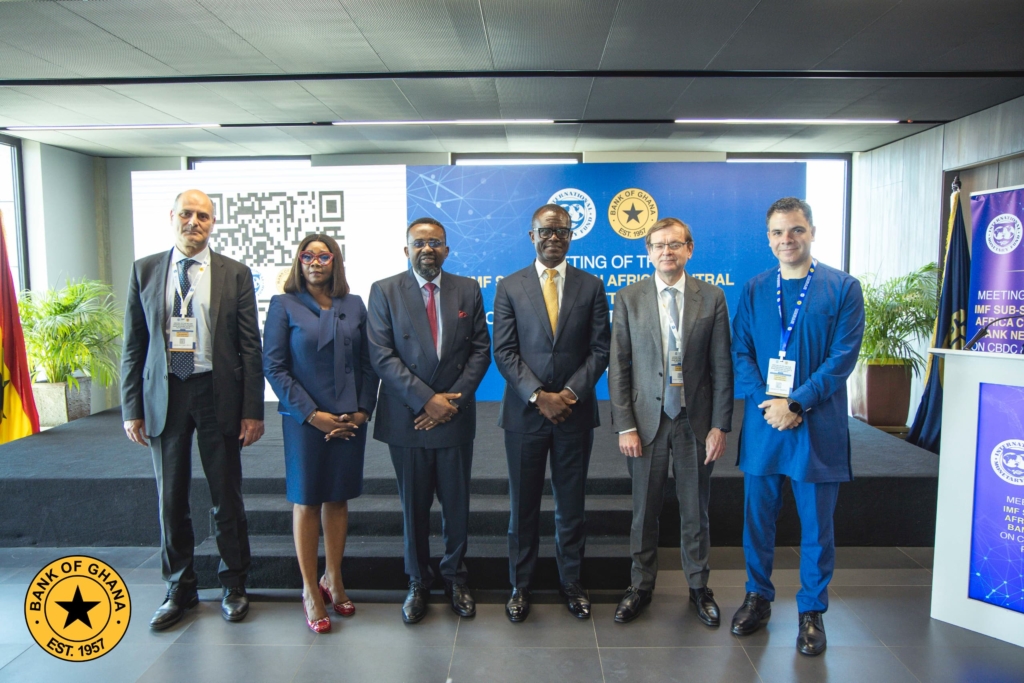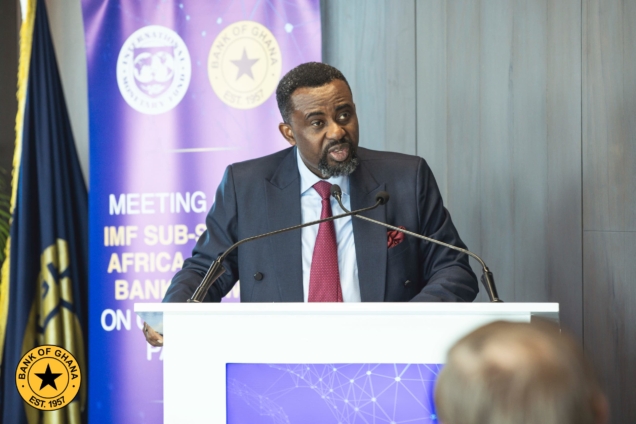
Audio By Carbonatix
The Bank of Ghana has indicated that infrastructure alone is not enough to build a robust and efficient payment system in Ghana and the rest of the Africa continent.
According to the Governor, Dr. Johnson Asiama, policy coherence and regulatory agility must go hand-in-hand to achieve a vigorous and effectual payment system.
“We see strong potential in tools such as multi-regulator sandboxes, which bring regulators, innovators, and governments into a shared testing environment. Similarly, Supervisory Technologies (SupTech) can enhance real-time compliance monitoring, cross border data flows, and information sharing”, he told Central Bank Governors at a meeting in Accra. Present were the Deputy Director of the International Monetary Fund African Department and Senior Officials from the World Bank and IMF.
“We must also be proactive in shaping international digital standards – in areas such as AML/CFT, digital identity, and data privacy – so that they are inclusive of our contexts rather than imposed from outside. Digital trade agreements, when thoughtfully constructed, can also promote interoperability and trust” he explained.
The Governor added “But as we talk about systems and standards, let us not lose sight of the real human stories behind these reforms. The single mother receiving remittances to keep her children in school. The young entrepreneur seeking payment channels to export their goods. The regulator striving to ensure innovation does not outpace resilience. These are the lives we must center in our work”.

Cross-Border Payments
The Governor continued that cross-border payments in particular, hold immense potential to drive inclusive growth and support livelihoods – yet they continue to face multiple frictions: high transaction costs, slow processing times, limited transparency, and inadequate interoperability.
These challenges, he pointed out, arise from a patchwork of regulatory frameworks, legacy systems, differing time zones, and a lack of alignment on data standards, consumer protections, and compliance protocols.
For the continent, Dr. Asiama said the stakes are high, adding, remittances, often lifelines for families, remain costly and inefficient.
In addition, small businesses struggle with the high friction of cross-border trade settlements, and regulators face growing complexity in balancing openness with oversight.
The seminar will end today May 13, 2025. The Governor urged all to engage in open, forward-looking, and critical dialogue.
Latest Stories
-
Mahama won’t appoint more than 60 ministers – Ayariga
13 minutes -
AU inaugurates committee to drive AfCFTA implementation
16 minutes -
CDD lauds Mahama’s administration for exceptional macroeconomic stability
19 minutes -
Ghana calls for greater inclusion of women, youth in West African leadership
22 minutes -
Ghana, Burkina Faso sign seven agreements to deepen security, economic cooperation
27 minutes -
Seized trucks: Government bans land transit of cooking oil
32 minutes -
U.S. Embassy warns Ghanaian travellers against visa overstays during 2026 World Cup
39 minutes -
Deportation of Chagos Islanders blocked by judge
42 minutes -
We’re in talks with Adeleke’s family to resolve Sophia, Davido custody dispute – Dele Momodu
51 minutes -
Rare prison sentences handed to Cameroon soldiers after killing of 21 civilians
1 hour -
CDM declares teacher recruitment crisis a ‘national emergency’
1 hour -
5 bodies of migrants washed ashore in east of Libya’s capital Tripoli, police officer says
1 hour -
Greenland says ‘no thanks’ to Trump US hospital boat
1 hour -
Powerful winter storm slams US northeast as NYC issues travel ban
2 hours -
Kim Jong Un re-appointed leader of North Korea’s ruling party
2 hours

